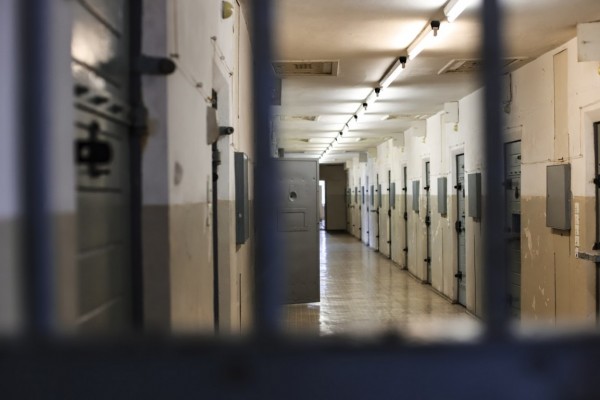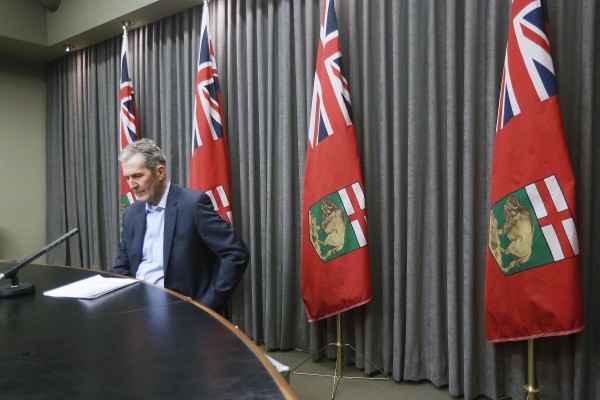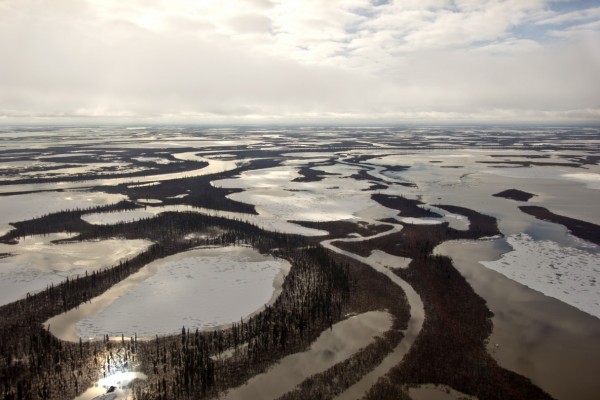-

‘They won’t even give him Tylenol’: An interview with the spouse of a COVID-positive prisoner in Manitoba’s Headingley jail
Headingley Correctional Centre, a provincial jail on the western edge of Winnipeg, is among the sites hardest hit by the pandemic. As of Friday, October 30, the jail had 69 confirmed cases—mostly prisoners along with a handful of staff. Canadian Dimension spoke with someone whose husband is incarcerated in Headingley. After a major bout of sickness, he was finally diagnosed with COVID-19.
-

Dispatch from Winnipeg, Canada’s newest COVID hotspot
Manitoba Premier Brian Pallister and his cabinet have shown little interest in implementing the widespread, long-term restrictions necessary to stem community transmission. As cases continue to spiral out of control in the province, it is once again clear that the PC government is allowing private interests to run rampant over the needs of the people.
-

Anti-maskers, the alt-right, and leftist messaging
Last week, hundreds of people gathered in Winkler, Manitoba to publicly oppose their school division’s COVID-19 precautions. This was the latest anti-mask rally in a string of demonstrations across Canada in recent months. While the rallies themselves aren’t particularly threatening, the messaging being used by demonstrators is plucked straight from the lexicon of progressive social justice movements. And that is cause for concern.
-

The fate of capitalism hangs in the balance of international power
Most commentary on international relations proceeds as if the global order floated above the patchwork quilt of the world map, an ethereal stage on which disembodied states play leading or bit parts in consequential but ultimately inexplicable plots. Inadequate at the best of times, such commentary will not serve when the fate of capitalism itself hangs in the balance of international power.
-

COVID-19 is taking a heavy toll on Toronto’s homeless
On any given day, over 9,200 people in the city of Toronto meet one of the definitions of homelessness. Shelters in the city generally reach an average occupancy rate of approximately 98 percent every night, and 76 percent of the homeless population claim that the key factor in improving their situation is “aid and accommodation in paying the high rents of the city.” COVID-19 is making the situation even worse.
-

Trudeau’s game of throne speech
Throne speeches are part of a tradition of parliamentary hypocrisy. We may sometimes win things in those settings, but the far more decisive question is the struggle that is taken up on the streets. In this time of crisis, that is truer than ever before and we must build the movements to hammer out and win a post-pandemic future based on the needs of workers and communities rather than empty Liberal promises.
-

Time to free Canada’s long-term care system from its backward history
History affords us a lens with which we may look back, spot mistakes, and, if we are wise, correct them. A situation that began before Confederation in 1867 has piggybacked upon itself for generations, repeating the same mistakes in one form or another. If we are to do better for seniors, the LTC system in Canada must break free from this historical pattern.
-
Mental health under neoliberalism: From self-help to CBT
The left has been pushing for greater access to mental health care for years, so for many, CBT could be viewed as an exciting success. However, we need and deserve better, beginning with solutions that target systemic causes of mental distress. Building radical futures means we must reconsider how we will support our communities, and work towards healing justice.
-

Political openings: Class struggle during and after the pandemic
After the pandemic, the challenge confronting the left is whether it can take advantage of the spaces capitalism has not completely conquered and the contradictions of life under capitalism that have blocked the full integration of working people, to remake the working class into one that has the interest, will, confidence, and capacity to lead a challenge to capitalism.
-

The Day After: Water
This marks the seventh installment in an ongoing curated series that asks contributors to imagine the perils and possibilities that will ground our collective response to or emergence from the COVID-19 crisis. Our seventh edition, about water, features contributions from Heather Dorries, Alice Cohen, Brittany Luby and the Niisaachewan Anishinaabe Nation, Kathryn Furlong, and Deborah McGregor.




